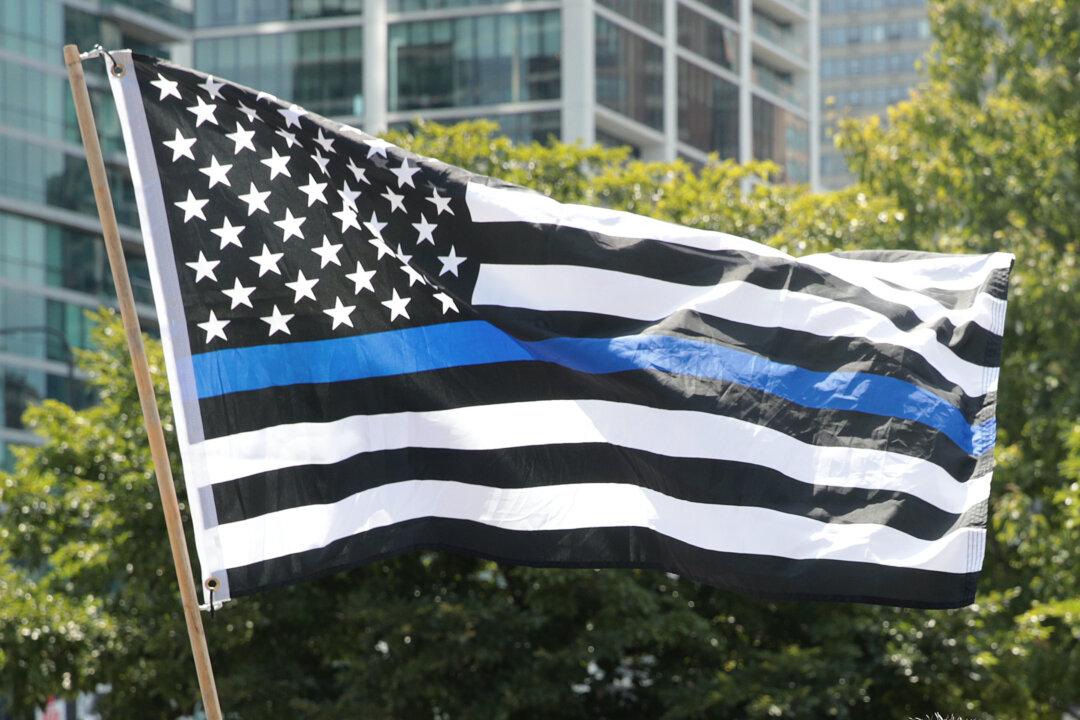A federal judge has ruled that it’s unconstitutional for a Pennsylvania community to prohibit the display of the “Thin Blue Line” or “Blue Lives Matter” flag that symbolizes solidarity with members of law enforcement.
The lawsuit stemmed from a Jan. 11 resolution adopted by Springfield Township’s board of commissioners, who voted 5–2 to ban the display of the flag on all township property. The ban also covered “visible depiction of the symbol on the clothing or skin” of the township’s employees during workdays or “while representing the township in any way,” meaning that police officers who have a Thin Blue Line-themed pin or tattoo wouldn’t be allowed to show it, not only when on duty but also whenever they’re wearing a uniform.





